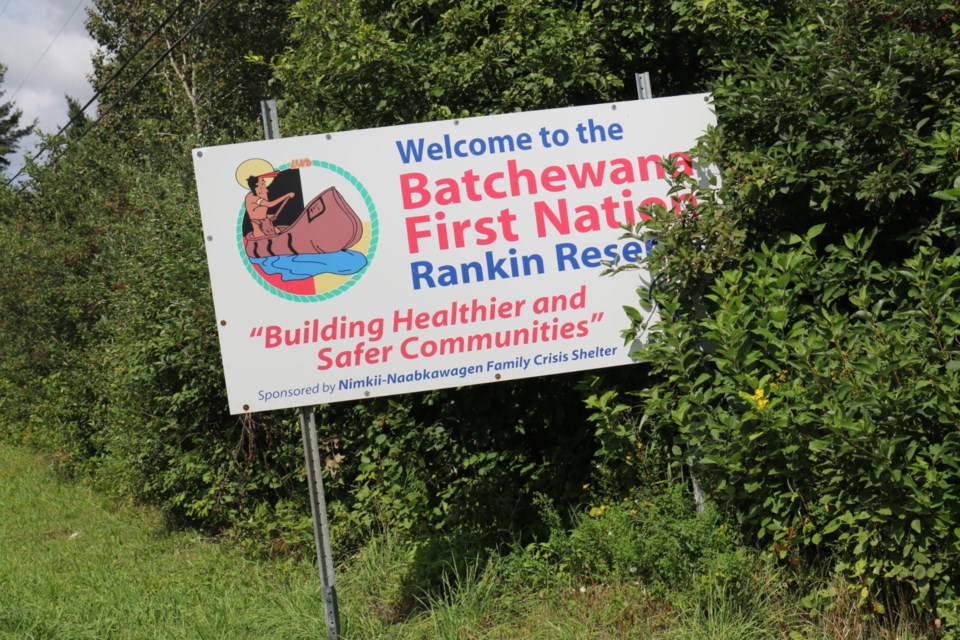Batchewana First Nation is reaffirming its inherent rights and authority over its territory, in the midst of an ongoing rift between First Nations leadership and the Métis Nation of Ontario.
In a release issued earlier this week, Batchewana asserted that unilateral claims or actions by external groups within the First Nation’s original territory that take place without prior and informed consent “constitute an infringement” upon its rights as a sovereign nation.
“Batchewana First Nation firmly maintains that any external group — including, but not limited to, the Métis Nation of Ontario and other First Nations — must seek explicit permission from BFN for any activities, assertions, or claims within our traditional lands,” the First Nation said.
“This requirement applies to land use, governance assertions, economic developments, and cultural practices that may impact our people, lands, and resources.”
The First Nation is reminding the public that engagements within its territory must be conducted through direct consultation and agreement with Batchewana leadership.
“We call upon all governments, organizations, and other First Nations to recognize and respect Batchewana First Nation’s rightful jurisdiction over our traditional lands,” said the release.
“Moving forward, we emphasize that all engagements within our territory must adhere to Batchewana First Nation’s established policy of seeking formal permission from Batchewana First Nation.”
Batchewana First Nation Chief Mark McCoy did not respond to a question from SooToday, asking if there were any instances of groups infringing upon the First Nation’s rights over its territory.
The release comes on the heels of a report from the Métis National Council Expert Panel, which in essence validates the Métis Nation of Ontario (MNO) and its so-called historical communities in the province.
Ontario and the MNO jointly identified the following historic Métis communities in 2017:
- Rainy River/Lake of the Woods Historic Métis Community
- Northern Lake Superior Historic Métis Community
- Abitibi Inland Historic Métis Community
- Sault Ste. Marie Historic Métis Community
- Mattawa/Ottawa River Historic Métis Community
- Georgian Bay Historic Métis Community
In 2023, a report commissioned by Robinson Huron Waawiindamaagewin (RHW) and authored by a team of Indigenous researchers claimed to disprove the historical existence of distinct Métis communities within Robinson Huron Treaty territory.
The end result — a report entitled An Exploratory Study of Métis Nation of Ontario’s ‘Historic Métis Communities’ in Robinson-Huron Treaty Territory — claimed the MNO used "poor research practices” to omit historical data that calls into question its interpretation of verified Métis family lines.
Another report commissioned by RHW, entitled The Sault Ste. Marie ‘Metis’ Community and ‘Halfbreed’ Petition, purported to disprove the existence of a distinct Metis community in Sault Ste. Marie.
Both reports alleged the MNO had been misidentifying Anishinaabe people as Métis in its own head counts within the treaty territory, which counts 21 First Nations among the signatories to the 1850 treaty.
The release of the report came shortly after the MNO voted to remove members with incomplete citizenship files, after finding that approximately 18 per cent of its membership — or 5,400 members — could not be verified as Métis rights-holders due to missing documentation.
The RHW has also expressed its displeasure with the signing of the Métis Government Recognition and Self-Government Implementation Agreement with the federal government in February 2023.
The agreement with the federal government acknowledged the MNO as the Indigenous government representing its citizens and Métis communities within Ontario, and has an inherent right to self-government recognized and affirmed by section 35 of the Constitution Act.
“The settler government of Canada and the MNO are attempting to push legislation through which will culminate with the signing of a 'modern-day treaty' that will encroach upon the rights of RHW and its citizens,” said former Batchewana First Nation Chief Dean Sayers in a news release at the time.
“This fast-tracked push is an affront to the unextinguished rights and jurisdictions of RHW.”
Amid widespread criticism from First Nations leadership over the years, the MNO has always maintained that it has inherent rights under section 35 of Canada’s Constitution.
Chiefs of Ontario, RHW and the Anishinabek Nation have all passed resolutions and declarations denouncing the MNO while accusing the organization of identity fraud.
Batchewana First Nation has inherent rights and ownership over four parcels of land in Sault Ste. Marie and the Algoma District, including Rankin Reserve 15D, Whitefish Island, Obadjiwan 15E and Goulais Bay 15A.
